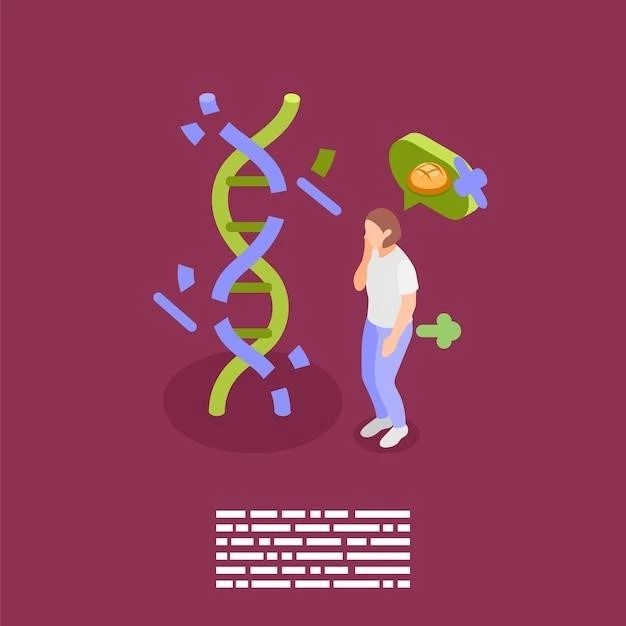Chromosome 6 Abnormalities Overview
Exploring Chromosome 6 abnormalities is crucial for understanding Monosomy 6q1, its symptoms, diagnosis, treatment options, research advances, and prognosis. It’s essential to provide support and resources for individuals facing Chromosome 6 deletions. Stay tuned for insightful information on this topic!
Monosomy 6q1 Genetic Condition
Monosomy 6q1 is a genetic condition characterized by the loss of a part of chromosome 6. This deletion can lead to various health issues and developmental delays. It is essential for individuals with Monosomy 6q1 to work closely with genetic counselors and healthcare providers to understand the implications of this condition on their health and well-being.
If you or a loved one have been diagnosed with Monosomy 6q1, seeking guidance from medical professionals specialized in genetic disorders is important. They can provide valuable information on managing symptoms, monitoring health, and accessing support services tailored to individuals with Chromosome 6 abnormalities. Remember, knowledge is power when dealing with genetic conditions like Monosomy 6q1, and staying informed can help in making informed decisions about care and treatment options.
Symptoms of Chromosome 6 Deletion
Understanding the symptoms associated with Chromosome 6 deletion can aid in early detection and management of potential health issues. Common symptoms may include developmental delays, intellectual disabilities, growth retardation, distinctive facial features, hearing loss, and heart abnormalities. It is essential to monitor and address these symptoms promptly to ensure appropriate medical intervention and support.
If you or someone you know is exhibiting these symptoms, seeking a comprehensive evaluation by a medical professional, such as a geneticist or a pediatrician, is crucial. Early diagnosis can lead to timely intervention and personalized treatment plans to optimize health outcomes. Remember, each individual may manifest symptoms differently, so personalized care and support are key in managing the effects of Chromosome 6 deletions.
Diagnosis and Testing for Monosomy 6q1
Diagnosing Monosomy 6q1 involves specialized genetic testing to detect the deletion on chromosome 6. Healthcare providers may recommend a combination of tests such as chromosomal microarray analysis, fluorescence in situ hybridization (FISH), and karyotype analysis to confirm the genetic abnormality.
If there is a suspicion of Monosomy 6q1 based on symptoms or family history٫ consulting a genetic counselor or a genetic specialist is advisable. These experts can guide you through the diagnostic process٫ explain the implications of the genetic condition٫ and help determine the best course of action for managing Monosomy 6q1. Remember٫ early and accurate diagnosis is essential for accessing appropriate care and support tailored to individuals with this genetic disorder.
Treatment Options for Chromosome 6 Disorders
When it comes to treating Chromosome 6 disorders, the approach often focuses on managing symptoms and providing supportive care tailored to individual needs. Treatment options may include early intervention services to address developmental delays, occupational and speech therapy to support communication skills, educational support for learning challenges, and medical interventions for associated health issues like cardiac anomalies or hearing loss.
Collaboration with a multidisciplinary healthcare team comprising geneticists, pediatricians, therapists, and other specialists is crucial in developing a comprehensive treatment plan for Chromosome 6 disorders. By seeking guidance from these experts and actively participating in the management of symptoms, individuals with Chromosome 6 abnormalities can enhance their quality of life and well-being. Remember, personalized care and consistent follow-up are key in navigating the challenges associated with Chromosome 6 deletions.
Research Advances in Chromosome 6 Abnormalities
Exciting developments in research are shedding light on Chromosome 6 abnormalities, including Monosomy 6q1. Studies are exploring new genetic testing techniques for early detection, refining treatment approaches to address specific symptoms, and investigating potential links between chromosome 6 deletions and other health conditions.
Staying informed about the latest research findings and participating in clinical trials, if appropriate, can offer valuable insights into the management of Chromosome 6 disorders. By collaborating with healthcare providers involved in cutting-edge research, individuals with these genetic abnormalities can potentially benefit from innovative therapies and interventions that may improve their overall outcomes. Remember, research plays a vital role in advancing our understanding of Chromosome 6 abnormalities and shaping future treatment strategies.
Prognosis and Outlook for Monosomy 6q1 Patients
Understanding the prognosis for individuals with Monosomy 6q1 involves considering the range of symptoms present, the severity of developmental delays, and any associated health complications. While the prognosis can vary widely among individuals, early intervention and comprehensive care play a crucial role in improving outcomes.
It is essential for Monosomy 6q1 patients and their families to work closely with healthcare providers to create a tailored care plan that addresses their specific needs. Regular follow-up appointments, ongoing monitoring of developmental progress, and access to support services can positively impact the prognosis for individuals with Chromosome 6 abnormalities. By staying proactive in managing health challenges and staying informed about available resources, patients with Monosomy 6q1 can navigate their journey with resilience and optimism.

Support and Resources for Individuals with Chromosome 6 Deletions
Accessing support and resources is crucial for individuals and families navigating Chromosome 6 deletions. Seek guidance from genetic counselors, patient advocacy groups, and specialists who understand the complexities of genetic conditions. These experts can offer emotional support, information on available services, and connect you with others facing similar challenges.
Exploring local and online support communities can also provide valuable insights and a sense of belonging. Additionally, educational resources, therapy services, and early intervention programs can play a key role in enhancing the quality of life for individuals with Chromosome 6 abnormalities. Remember, you are not alone in this journey, and reaching out for support can make a significant difference in how you cope with the impacts of genetic disorders like Monosomy 6q1.
Conclusion
In conclusion, understanding Chromosome 6 abnormalities, particularly Monosomy 6q1, is vital for individuals, families, and healthcare providers. From recognizing symptoms to navigating diagnosis, treatment, and prognosis, a comprehensive approach that involves collaboration with specialists and staying informed about research advancements is key.
By accessing support and resources tailored to Chromosome 6 deletions٫ individuals can enhance their quality of life and well-being. Remember٫ each journey with Monosomy 6q1 is unique٫ but with proactive management٫ personalized care٫ and a supportive network٫ individuals can navigate the challenges associated with genetic conditions with resilience and hope.
Stay informed, stay connected, and remember that you are not alone on this journey. Together, we can continue to learn, grow, and support each other in facing the complexities of Chromosome 6 abnormalities with strength and determination.
